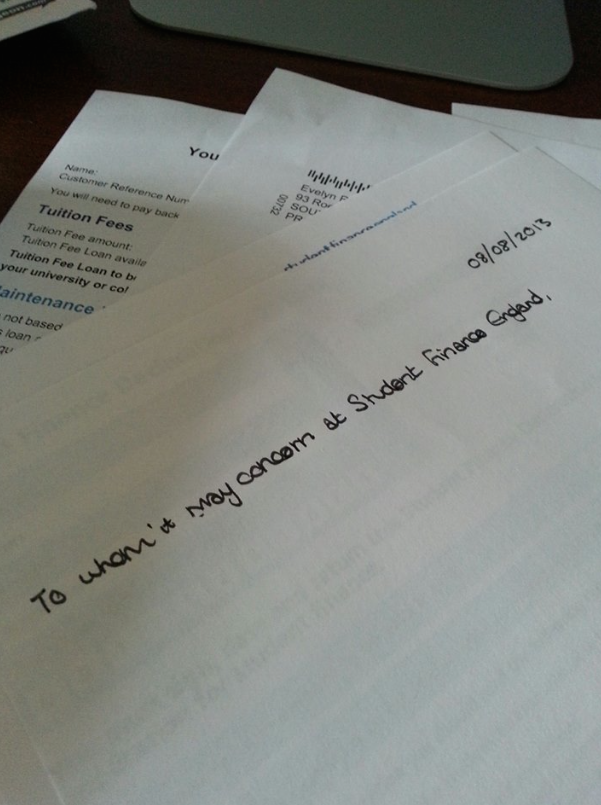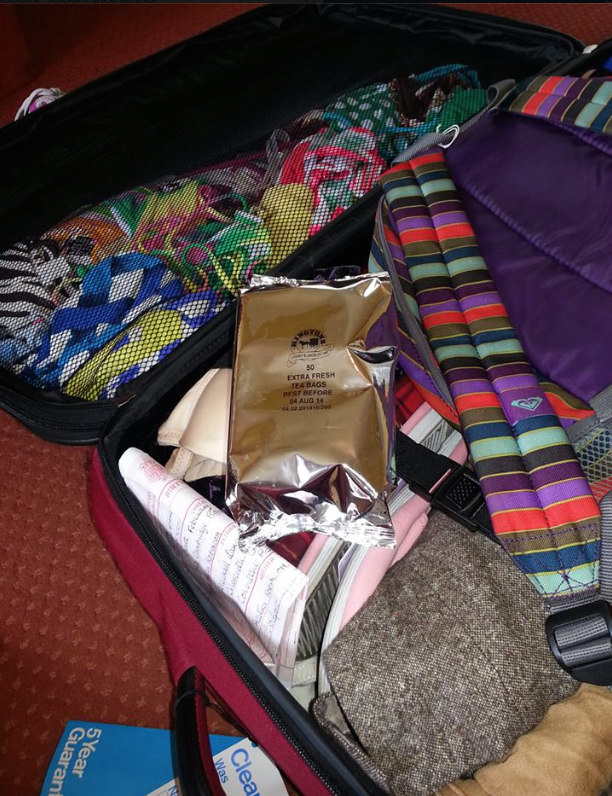When I found out I’d been accepted to study at the University of South Carolina, all I wanted to do was find out about all the crazy, diverse and eye-opening opportunities I’d be able to get my hands on once I arrived. But standing in the way of all that excitement was a whirlwind of stress, in the form of visa requirements, bank transfers, phone calls, appointments with the study abroad office, and paperwork, paperwork, paperwork. It’s the first time in my life I’d seriously considered hiring a PA. I just wished I had a comprehensive checklist of all the things I had to do before that nerve-racking departure came creeping up behind me. Without further ado, here’s my attempt to provide exactly that for those of you lucky enough to have the adventure of your lives ahead of you. 
- Book a visa appointment at your local embassy. If you’re studying abroad in a country that requires a visa, make booking your visa appointment over the summer holidays a top priority as the slots fill up fast. If possible, try and get a morning slot, as it means the waiting times in the embassy are likely to be shorter and backlog free.
- Unlock your phone. Go into your local network provider’s shop and request to unlock your handset for a small fee. It means that once you arrive in your host country, you will be able to buy and use a new sim card in your old device without having to fork out for a new phone.
- Keep receipts for major items that you’ll be taking abroad. If any of these items get lost, damaged or stolen during your time abroad, you’ll be able to claim for them on your insurance policy without having to worry about finding proof of purchase.
- Buy travel and health insurance. At some host universities, you are required to purchase the university insurance that is often expensive (USC’s insurance was over $800 a semester), but in most cases you are eligible to waive the policy and purchase your own. Start this process as soon as possible as it can be paperwork and email-intensive.
- Request a copy of your medical and vaccination history from your local doctor’s for a small fee. Most host universities require this in order to fully accept your place abroad. Don’t forget to get all outstanding jabs if required, too.
- If your study abroad year is not compulsory, submit your change of degree programme form to your parent school. Once I had been accepted to study abroad, my degree title changed from ‘English and History’ to ‘International English and History’, and my parent school needed to know in order to revise my graduation date.
-
Notify student finance services that you are studying abroad so that you will have those all-important funds for the next year. With all those weekend trips ahead of you, you’ll need it.

- Enrol for modules at your host institution. If your year is on a pass/fail basis, think about trying something new while you have the freedom to do so without being penalized. Humanities students- it looks especially impressive on your CV if you choose to study something related to your host country or new local area.
- Let your bank know that you’re going abroad.
- If you already haven’t, get internet banking. It makes life a whole lot easier to manage and transfer funds when you’re on the other side of the world.
- If you don’t have a credit or debit card that will work free of charge while abroad, get a currency card. You can get these from travel agencies like Thomas Cook, and they allow you to load a temporary card with as much $$$ as you like, to tide you over until you get a bank account in your host institution.
- If there is a networking event at your home institution- GO TO IT. I met all of the other Leeds students studying at USC when I went to mine, and we remained friends for the whole year.
-
Sort out accommodation in your host country. If you are going to be automatically enrolled for housing in university halls, start thinking about whether you’d like to be on campus, and whether you’d like a roommate.

- Submit disability and health forms. If you have any major disability or health complications your host institution must know about this ASAP.
- Find out about student counseling services at your host institution. Should anything untoward happen, or you receive bad news from home while you’re abroad, you’ll know where to go if you need extra support.
- Look into bursaries, scholarships and competitions that offer money for outgoing study abroad students. From the perspective of an ex-study abroad student who has just come home to depleted funds, take my word that you’ll be glad for all the financial help you can get.
- Check your passport validity.
- Book your outgoing flight. If you can avoid it, don’t book your return flight for the end of the semester or the year. If you do, you’ll be consigned to a definite end date when many of your new friends will be making exciting travel plans. In addition, consider flying over a couple of days earlier than your move-in date and staying in a hotel. This is useful if you’d like some time to recover from jetlag and open a bank account overseas before orientation sessions begin.
- Check baggage allowance. If you are going for the year and would like to take two suitcases, an extra one usually costs around £80-£100.
- Take your railcard, bus passes, Oyster card and any other travel passes with you. You might need these when travelling home for Christmas, or at the end of the year.
- Get to know your study abroad mentor from your host institution over the phone or via email. Getting to know a real person on the other side of the world who is there to help with the transition is an indispensable way to reduce pre-departure anxieties.
- Register with your home university. Even though you’re going abroad, you still need to renew your registration for the upcoming year at home.
- Pay outstanding library fines. You’ll be depressed enough coming home at the end of the year without having to come home to library debts.
- Collect and print evidence of your return home. Many embassies and airport authorities like to see (and require) evidence that you will be returning home at the end of the year. This could be job forms, your registration certificate from university or anything that states you won’t be graduating for another year.
- Scan all paperwork and print 2 copies. Leave one set with someone you trust at home, and take the other set with you.
-
If you are going to America, and like drinking tea, take a box of teabags with you. The strongest tea you’re going to find out there is Twinings, and that’s practically tea-flavoured milkshake.

- Download the app ‘1 Second Everyday’ and document your time abroad. Every second will be unforgettable, and you’ll want to re-live the experience when you return home.
- Start a blog. It’s a cathartic way to document your study abroad experience and the perfect opportunity to enhance your CV. Blog about your fears, hopes and expectations. Blog about the locals. Blog about sorority life. Blog about culture, art and about people. Blog about blogging if you have to.
-
Think about what you want from the year. Some people see the year as an opportunity to work as little as possible, and party HARD. Others see it as a chance to radically transform their CVs, integrate within a new culture, enhance global employability, and get involved with extra-curricular life. What will you regret not doing the most?





Great material AGAIN! Miss you!
Sent from my iPhone